The Milestone potash project is being developed in Central Saskatchewan, Canada. Western Potash, a wholly-owned subsidiary of Western Resources, fully owns the project and will also operate it.
The project is proposed to be developed in three phases with an estimated investment of $98m for the phase one and $3.3bn in total for the second and third phases.
The phase one is anticipated to produce 146,000tonnes per annum (tpa), while the other two phases are expected to produce 2.8 million tonnes per annum (Mtpa). It is expected to produce 2.24Mt of granular and 0.56Mt of standard potash a year in full capacity.
Feasibility study of the project was completed in December 2012, while the environmental assessment was approved in June 2017. Western Potash signed a project agreement with Rural Municipality of Lajord (RM of Lajord), in August 2017, for the construction and operation of the project.
Project Gallery
-
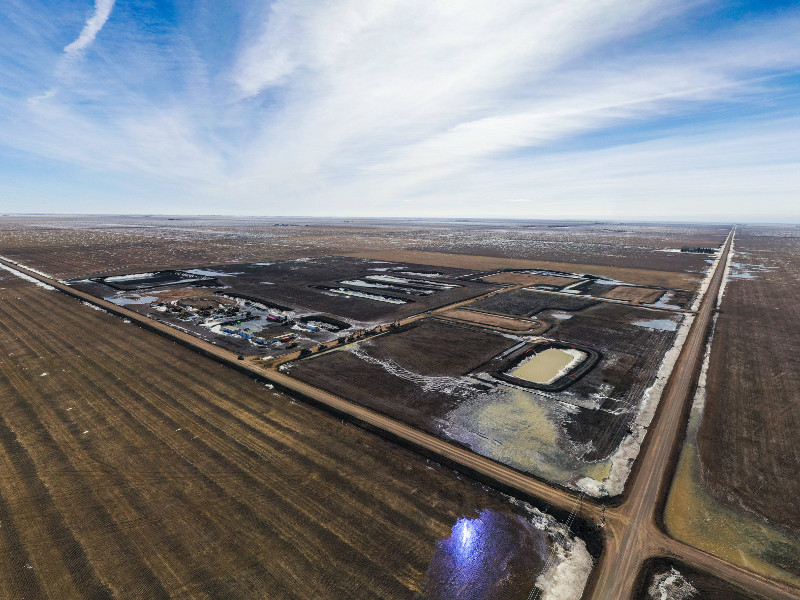
Milestone potash project is located in Saskatchewan Province, Canada. Image courtesy of Western Milestone.
-
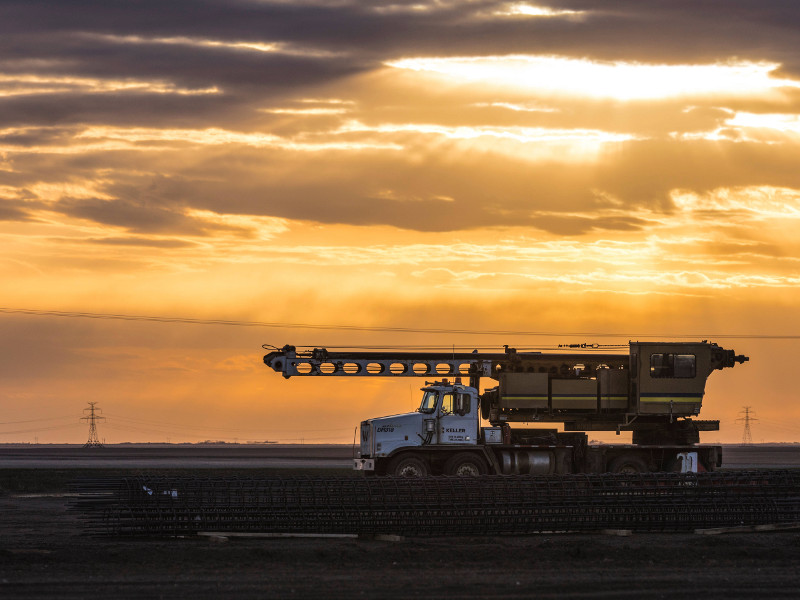
The project is estimated to produce 2.8Mt of potash per annum. Image courtesy of Western Milestone.
-
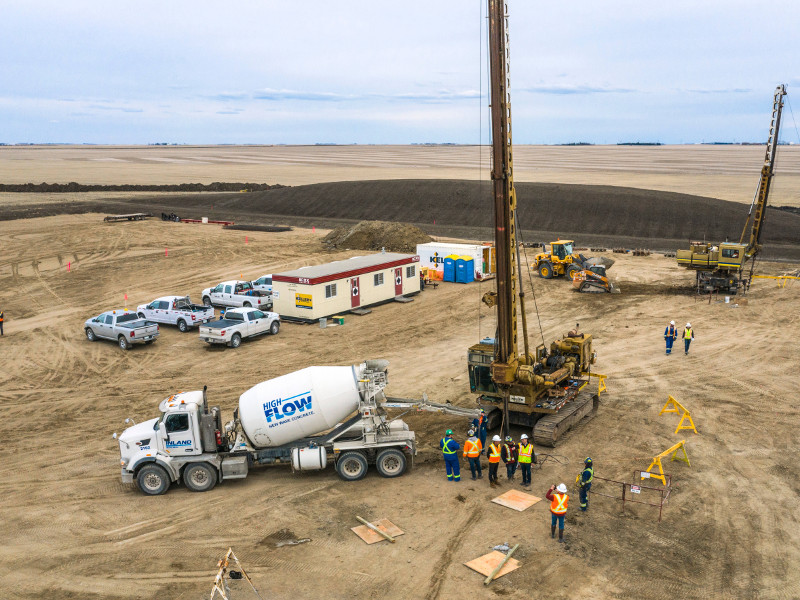
Early works at the project site were completed by October 2018. Image courtesy of Western Milestone.
-
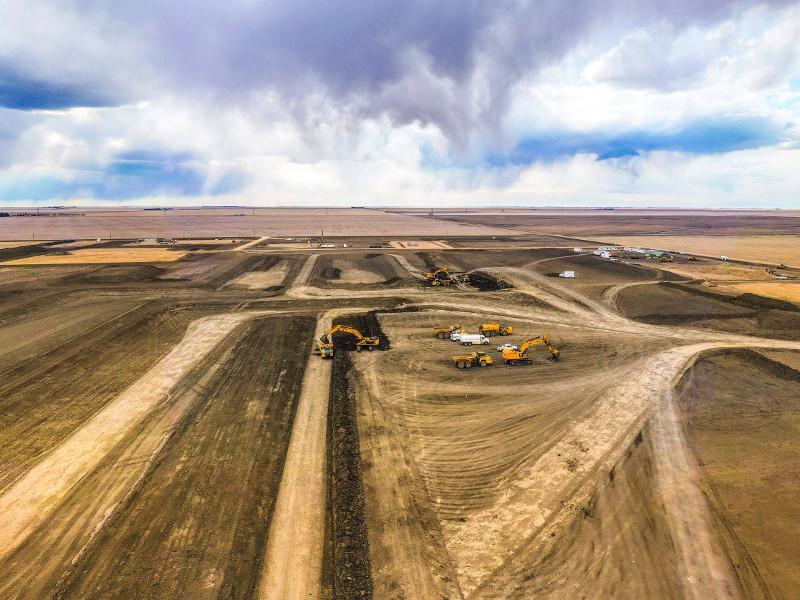
The project development is estimated to cost approximately $98m in the first phase and $3.3bn in the remaining phases. Image courtesy of Western Milestone.
-
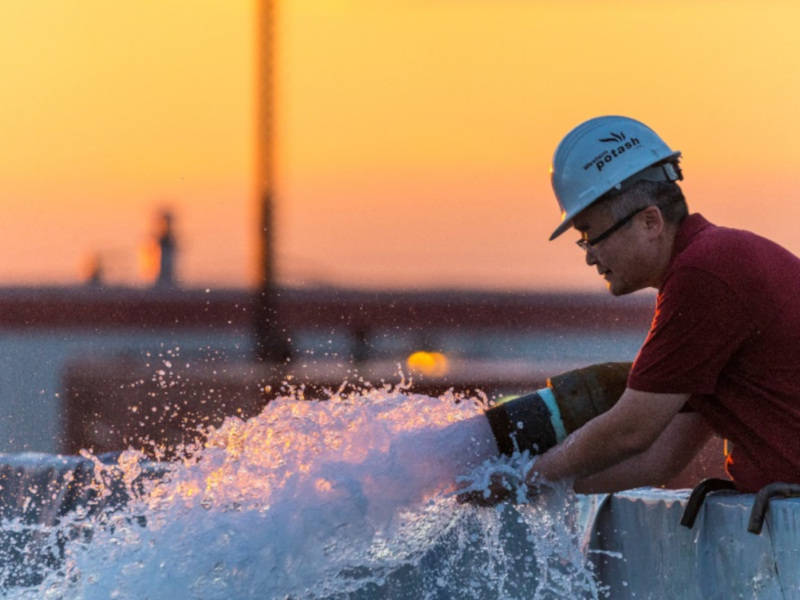
Western Resources is developing the project through its wholly-owned subsidiary Western Potash. Image courtesy of Western Milestone.
Early works at the project site were completed by October 2018, while full construction is expected to be started in 2019. First potash is anticipated to be produced by mid-2020.
Milestone potash project location and geology
Located approximately 35km south-east of Regina, Saskatchewan, the Milestone potash project comprises more than 87,530 acres of Crown mineral lands on the KLSA 008 Lease area.
The project area is underlain by Esterhazy, Belle Plaine, and Patience Lake Members. It also comprises White Bear Marker Beds, which host thin interbedded clay, halite, and sylvinite beds present between the Belle Plaine and Esterhazy Members.
Milestone potash project reserves
The proven and probable reserves at the Milestone potash mine are estimated to be 680Mt, grading 26.99% KCI.
Mining at Milestone potash project
Selective solution mining method will be applied at the Milestone potash project, along with horizontal drilling and crystal pond technique. Potash will be mainly extracted from the Patience Lake, Belle Plaine, and Esterhazy Members of the Prairie Evaporite Formation.
Mining will be conducted in four stages and through two wells, which penetrate the potash bed vertically at a depth between 50m and 80m.
The first stage is the sump development, wherein a sump will be created at each well below the potash horizon. The top of the sump will be expanded by injecting water and oil in the second stage.
The oil will enable the vertical growth of the sumps, resulting in lateral growth of top of the sumps. Water will be injected in the annulus of each well as part of the sump and roof development, and saturated salt brine will be recovered in the tubing at the bottom of the sump.
Primary mining will begin in the third stage, while the fourth stage will involve secondary mining.
Approximately 2.0Mtpa of K60 product, with a K2O content of 60%, is proposed to be produced under the primary mining phase, which is estimated to be completed after two years and six months, following which 35 caverns will be transitioned to secondary mining and replaced.
Potash processing at Milestone project
The processing plant will have the capacity to produce 2.8Mt of potash a year. It will produce two products namely granular and standard. The production will include 2.24Mt of granular product and 0.56Mt of standard product.
Brine from primary mining will be processed in two trains of evaporators followed by two trains of crystallisers. Each train of evaporator/crystalliser will have a capacity to produce 1.0Mtpa.
The brine produced by secondary mining will be sent to the crystallisation pond, wherein the solids will be harvested by dredging. The resulting solid material, from both the crystalliser trains as well as crystallisation ponds, will be debrined, dried, and screened to produce a final standard product.
The oversize and undersize fraction, along with a small portion of standard fraction, will be fed to the compaction plant, which will process the material in two compaction circuits to produce granular material.
The standard and granular products will be transported to the product storage building, before being conveyed to the load-out building for final treatment. The final product will be loaded in railcars for delivery to the customers.
Project financing and off-take agreements
In June 2013, Western Potash entered an off-take term sheet with CBC Canada Holding (CBCHC) for the purchase of 30% or 1Mt of potash a year from the project for a period of 20 years. CBCHC is a joint venture between China BlueChemical and Benewood Holdings.
Western Potash signed a letter of intent (LoI), in February 2017, with China BlueChemical for the off-take of up to 145,000t of potash a year produced at Milestone. The off-take agreement is valid for a period of ten years and will expire in October 2026.
Infrastructure facilities
The Milestone project can be accessed by a network of grid section gravel and paved roads, including three major paved highways 6, 33, and 39.
Raw and potable water are proposed to be supplied to the project either from the City of Regina or the Qu’Appell River System, at an initial rate of 2,500m³/h. Two buried 600mm diameter steel pipelines will provide raw water either from the City of Regina or from the Qu’Appelle River System.
Potable water supply to the site is proposed to be made through a buried 75mm steel pipeline from an unidentified location within the City of Regina or from the nearby groundwater sources.
Water supply for phase 1 will be collected from the aquifers in Viking Formation and Mannville Formation, located at depths of approximately 680 and 745 meters below surface.
Power for the project will be supplied by SaskPower through a 138kV overhead transmission line.
Natural gas will be sourced from a natural gas pipeline west of the Milestone property. A new buried 250mm diameter high-pressure pipeline will be constructed to supply natural gas to the site.
Contractors involved
Western Potash selected Stuart Olson Prairie Construction as the general contractor for the construction of the Milestone potash project phase one, in June 2019. SNC-Lavalin conducted the detailed engineering study of the phase one.
Amec Foster Wheeler and Agapito Associates prepared the final engineering report of phase one in December 2016.
Agapito also partnered with Novopro Projects for preparing the pilot study for the Milestone potash project.
